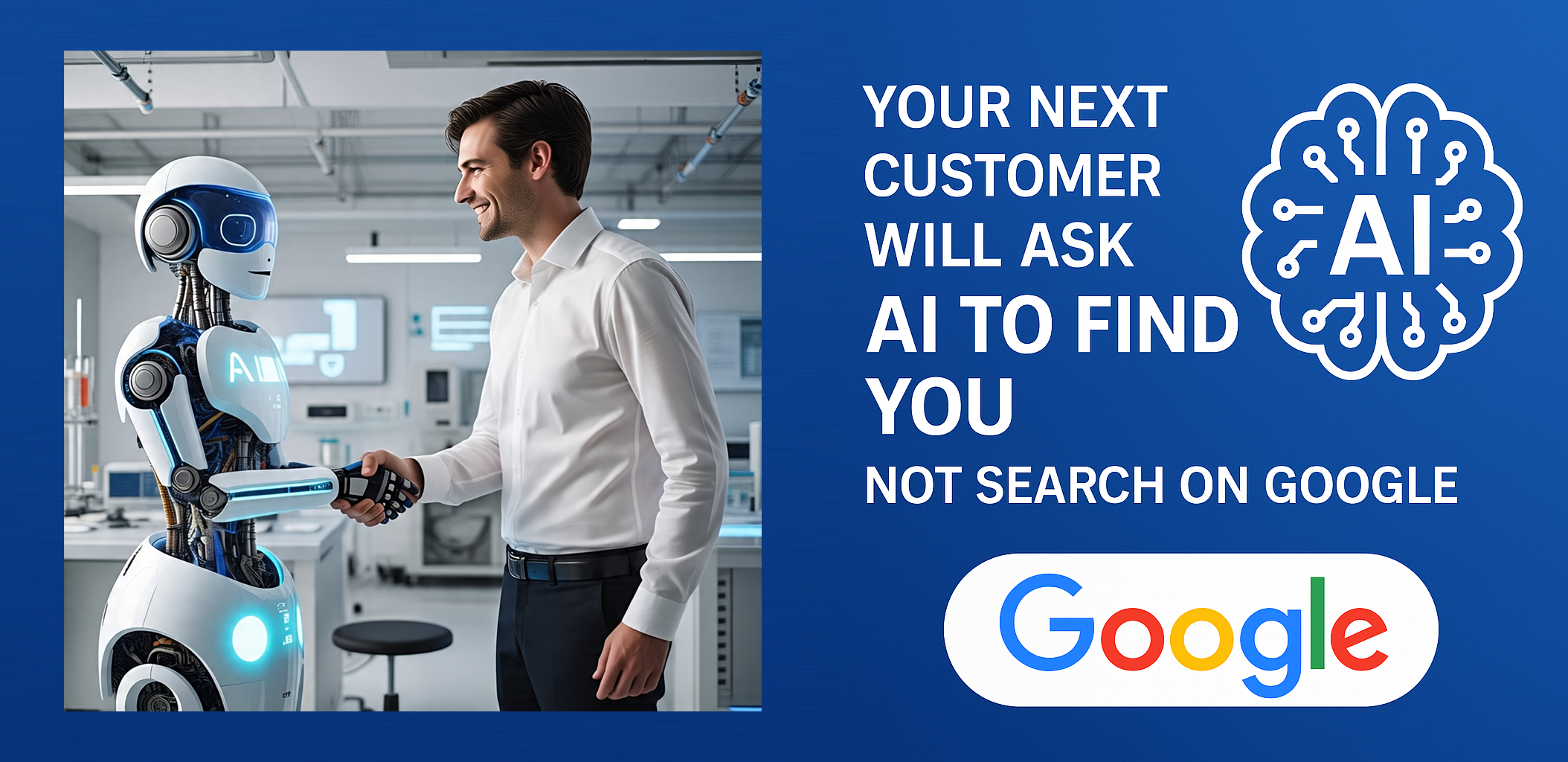Why Generative Engine Optimization (GEO) Is the Future of Digital Discovery
For years, the golden rule of online visibility was simple: rank high on Google. Businesses invested heavily in SEO, paid ads, and content marketing strategies to climb those coveted search results.
But the rules are changing—fast!
The Decline of Traditional Search
Recent projections suggest that Google search traffic could drop by up to 25% in the next year or two. Why? Because more people are turning directly to AI assistants—like ChatGPT, Gemini, and Claude—to get their answers.
These tools don't just search the web. They synthesize it. When someone asks, "What’s the best CRM for small businesses?", they’re no longer getting ten blue links. They’re getting one, conversational, curated response.
If your brand isn’t in that answer—you’re invisible.
Enter: Generative Engine Optimization (GEO)
GEO is the new frontier of online visibility. While SEO focuses on ranking in traditional search engines, GEO is about becoming discoverable in AI-generated answers.
Where SEO optimized for Google’s algorithm, GEO ensures your content is:
-
Readable by AI
-
Credible to AI
-
Referenced in AI-generated responses
Why GEO Matters Now
-
AI-first discovery is the new default. Your next customer won’t “Google it”—they’ll ask ChatGPT.
-
AI-generated answers are trusted more than search results because they’re conversational, concise, and often feel more objective.
-
Early adoption = advantage. The digital space is not yet saturated with AI-optimized content. The early movers will own key niches.
How to Optimize for AI Tools Like ChatGPT, Gemini & Dala
Here are five powerful strategies to make your content discoverable in the AI age:
1. Be the Source: Create Hyper-Specific, Authority Content
AI values depth and clarity. Don’t just target keywords—own topics.
-
Topic Clusters: Build pillar pages (e.g., "Complete Guide to NIST Cybersecurity Compliance") and link them to detailed subtopics.
-
"Answer Zero" Strategy: Structure pages with clear, direct answers immediately after a question header.
-
Original Research & Expert Interviews: Publish exclusive content and insights AI won’t find elsewhere.
-
Multi-Modal Content: Use infographics, videos, and visuals—with clear metadata—for better AI parsing.
2. Master Structured Data & Semantic Markup
AI doesn’t just scrape—it reads structured data.
-
Use advanced Schema.org
markup (e.g.,Service,Organization,Review,LocalBusiness). -
Maintain consistency across public knowledge graphs like Google Business, Wikidata, and industry directories.
-
Define key entities on your site (what your brand, products, and services mean).
3. Build Deep Relational Authority
AI gauges your reputation across the web.
-
Citations > Backlinks: Get mentioned by reputable sources—even without links.
-
Ecosystem Presence: Ensure your leaders are speaking at events, on podcasts, or quoted in major outlets.
-
Review Management: AI scans sentiment. Engage with reviews across all platforms.
4. Prioritize Clarity & Explainability
AI models thrive on clear, unambiguous content.
-
Write in a conversational tone, avoiding jargon.
-
Optimize your “About Us” and “What We Do” pages—they help AI models understand your business identity.
-
Maintain consistent entity naming across all pages and platforms.
5. Track, Test, and Adapt for AI Visibility
-
Use AI tools to audit your own content for clarity and discoverability.
-
Simulate prompts and use prompt engineering to test if your site is being referenced.
-
Analyze competitor visibility in AI outputs to find gaps.
-
Monitor changes in AI behavior (e.g., model updates, dataset changes).
The Future Is AI-First—Be Findable In It
The shift away from traditional search isn’t coming—it’s already here.
Your next customer isn’t searching.
They’re asking.
Make sure the answer includes you.
Ready to Get Found by AI?
If you need help developing a GEO strategy—from structured data implementation and AI audits to high-authority content creation—we’re here to guide you.
Let’s future-proof your digital presence.

